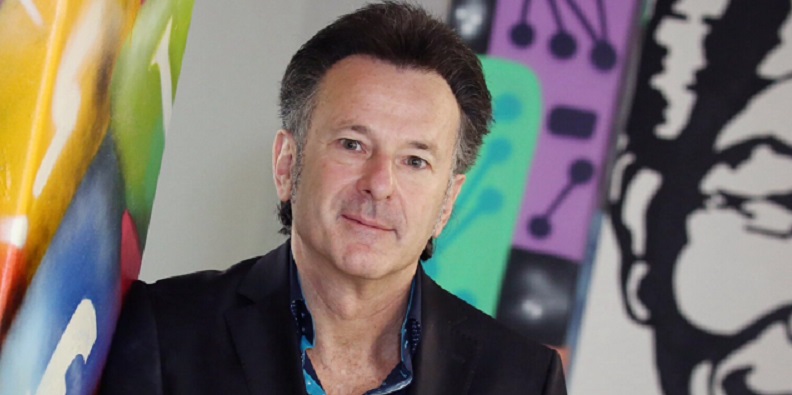We all have them. Those apps we open without thinking. Not because we need anything in particular, but because they feel… safe, in some…
10 questions startup founders should ask before looking for funding

So, you’ve launched a startup and now you want to raise millions from a venture capitalist or angel investor. Hang on a second, do you really want funding?
Taken at the wrong time it can put a lot of pressure on your startup. But should you decide to do it, how much of your startup are you willing to give up? Which investor is right for you?
These are just some of the 10 questions startup founders should ask before seeking funding. Let’s take a look:
1. Do I really want outside funding?
Funding isn’t free. I warn entrepreneurs at every opportunity that they must carefully weigh the financial consequences of taking outside money.
It may not only come with interest and giving up a large share of profits but can put a lot of pressure on your startup to deliver specific results on your investors’ timelines.
It means taking on a substantial obligation to those investors, in addition to the company itself and any co-founders, employees, and customers you already have.
Some very successful founders on the DealMakers podcast are fans of taking as much money as you can get. Even if it means taking money early, while it is cheaper. Others are very cautious about only raising just enough, or even not raising until it is a necessity.
2. How much am I willing to give up?
This one is definitely one of the most questions that entrepreneurs must ask before seeking funding. Accepting funding means you are trading a piece of your company and its ownership for money.
How much are you willing to give up? How much control are you willing to give up? Because, when you bring in investors and new board members they have a say in how you run the company.
Perhaps an even better question is, what the return will be on any funds raised.
Will the money you receive for giving up 25% of your company in this next round ultimately return you far more over the long run than that 25% of profits would have put in your pocket? What about once you have given up 50%, 75% or more?
3. What role will I take?
What role will you take during the funding process? What role will you take afterward?
Fundraising is a lot of work. In early fundraising rounds, investor pitches can be very demanding.
In later rounds, it can be surviving the due diligence which really demands mastery. obviously the questions that entrepreneurs must ask before seeking funding will vary from financing cycle to financing cycle as the business matures.
Who in your company, or among your expert consultants will take the lead on the fundraising process? Is there someone that may do it better than you? Or will multiple people need to be actively involved in this on a daily basis?
Business experience can be a large factor in getting funded. Some of the entrepreneurs I’ve interviewed have turned to hire new CFOs and CEOs early to help position them to attract more capital and harness experts in building a real business.
Or you may have to be prepared to focus all of your time on this side of the venture, and ensure you have an amazing technical and marketing team to handle all of the product-related side of the business.
4. What should I look for in an investor?
You’re not ready to pitch or even create a pitch deck unless you know the type of investor you really want for your startup. Capital is still plentiful right now.
Raising money from angels and VCs is far more about what they can do for you besides the money. The money is just a tool that ties you together and gets them invested in your success.
The more time you take defining the investors you really want for this round, the better. This can change by round too. You’ll likely need a very different set of investors at your Series-B than a Seed Series round.
What do you want them to do for you? If it’s to break into a new market, then maybe you want a VC fund based in Asia, not Silicon Valley. If you want to get to mass through a specific retail channel, it may be a corporate investor or accelerator you need.
If this is a venture you deeply care about, then ensuring alignment in mission, vision and business philosophy and ethics is critical. Or you may quickly see your startup turning into exactly the problem you wanted to disrupt and change in the first place.
5. Would I invest in this business?
Looking at what you have to offer, present and what’s going on inside, would you put R100k or R100-million into this startup as an investment if you had the cash and freedom to invest in anything.
The key when thinking about the questions that entrepreneurs must ask before seeking funding is to look outside the box and see if they would invest if it was someone else running the show.
If not, what can you do to bring it up to par? Does accounting need to be improved? Are there distribution and manufacturing logistics to be improved?
6. Do I know what investors are expecting at this fundraising stage?
There are some business basics that should be obvious any investor will look for. However, what investors expect and demand before considering writing a cheque can change at every round too.
You might get away with being super passionate and a great salesperson when it comes to pre-seed friends and family or even small angel rounds.
Later on, you will have to prove momentum, revenues, and more. If you don’t know, then you can serve it up to them.
7. Do I have time to invest in fundraising?
Even the most successful startup fundraisers report that this can take up half of their time during early rounds. It may take 200 numbers to get a cheque (it took Johannesburg based fintech startup visits to over 50 investors, see this story — Ed)
In later rounds, the due diligence part can demand daily and weekly phone calls and meetings. That’s all on top of everything else you need to do for the business, and to meet your obligations to any earlier investors.
Do you have the time? If so, is it going to provide the best return on investment (ROI) on your time? How will that compare to just getting to work making sales and then letting investors seek you out?
8. What is the one metric you’ll raise on?
Even if you have a two-sided marketplace startup that solves multiple problems, it is far easier to excel and impress investors if you can focus on one data set or metric. Keep it simple for them. Show them that you can consistently growth that metric between every milestone. What’s yours?
9. Am I prepared to answer investor questions?
A slick pitch deck and tight verbal pitch is great. Being ready to answer all the questions investors will throw at you and test you with can be a completely different ball game. Anyone can wow with a quick sales presentation. Those that stand out are those who can back it up.
10. Have I researched winning pitch deck formulas?
Of course, you may never get the chance to field those questions if your pitch deck is a flop. Make sure you know what investors really expect in a deck, and what they spend most of their time looking at.
Clive Butkow is a Johannesburg based venture capitalist and CEO of Kalon Venture Partners.
Featured image: Kalon Venture Partners CEO Clive Butkow (Supplied)

